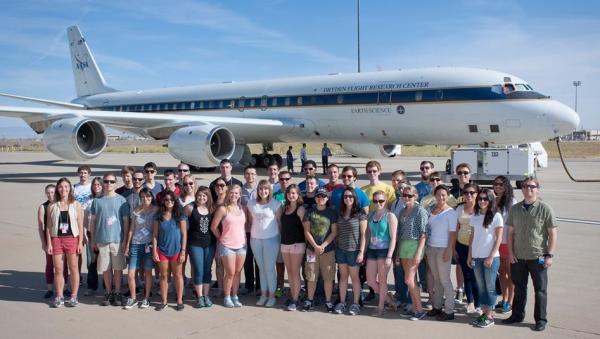RESEARCH OPPORTUNITY
The Student Airborne Research Program (SARP) is an eight-week summer internship program for rising senior undergraduate students to acquire hands-on research experience in all aspects of a scientific campaign using one or more NASA Airborne Science Program flying science laboratories (aircraft used for SARP include the DC-8, P-3B, Sherpa and ER-2).
The Student Airborne Research Program (SARP) is an eight-week summer internship program for rising senior undergraduate students to acquire hands-on research experience in all aspects of a scientific campaign using one or more NASA Airborne Science Program flying science laboratories (aircraft used for SARP include the DC-8, P-3B, Sherpa and ER-2).
The NASA Airborne Science Program mantains a fleet of aircraft used for studying Earth system processes, calibration/validation of space-borne observations, and prototyping instruments for possible satellite missions. SARP participants will assist in the operation of instruments onboard an aircraft to sample atmospheric chemicals, and/or to image land and water surfaces in multiple spectral bands.
Research areas include atmospheric chemistry, air quality, ecology, and ocean biology. Along with airborne data collection, students will participate in taking measurements at field sites. The program culminates with formal presentations of research results and conclusions.
Applications are accepted each year for SARP from November through January.
SARP On Social Media:
http://www.facebook.com/nasasarp
Blogs
https://blogs.nasa.gov/earthexpeditions/tag/sarp/
Esther Thomas, University of New Orleans, (SARP 2011) operates the Whole Air Sampler onboard the NASA DC-8


